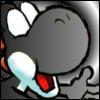I ask, because his works, The Lord of the Rings, The Hobbit, The Silmarillion, etc are generally viewed as great literary works in Western nations, and Tolkien himself referred to as "The Father of Modern Fantasy".
Just curious as to what people in places not considered Western Nations view his works as.
How is J.R.R. Tolkien's works viewed in non-Western nations?
Moderator: Community Team
10 posts
• Page 1 of 1
How is J.R.R. Tolkien's works viewed in non-Western nations?
"Eh, whatever."
-Anonymous
What, you expected something deep or flashy?
-Anonymous
What, you expected something deep or flashy?
-

 muy_thaiguy
muy_thaiguy
- Posts: 12746
- Joined: Fri May 18, 2007 11:20 am
- Location: Back in Black








Re: How is J.R.R. Tolkien's works viewed in non-Western nati
The Chinese language Wikipedia includes that description of him as "the father of modern fantasy literature" in its intro. Though who knows if that was written by someone in China.
-

 Metsfanmax
Metsfanmax
- Posts: 6722
- Joined: Wed Apr 11, 2007 11:01 pm

























Re: How is J.R.R. Tolkien's works viewed in non-Western nati
Metsfanmax wrote:The Chinese language Wikipedia includes that description of him as "the father of modern fantasy literature" in its intro. Though who knows if that was written by someone in China.
That page written in traditional script, which means it was almost certainly written by someone from either Hong Kong, Taiwan or the Chinese diaspora living in the West. My guess is Hong Konger or diaspora.
-
 mrswdk
mrswdk
- Posts: 14898
- Joined: Sun Sep 08, 2013 10:37 am
- Location: Red Swastika School














Re: How is J.R.R. Tolkien's works viewed in non-Western nati
I think he is the greatest fantasy writer ever.

-

 notyou2
notyou2
- Posts: 6447
- Joined: Thu Jan 15, 2009 10:09 am
- Location: In the here and now


















Re: How is J.R.R. Tolkien's works viewed in non-Western nati
notyou2 wrote:I think he is the greatest fantasy writer ever.
I'm sure that there might be some that would dispute that. In fact I would argue that modern fantasy is not very much like Tolkien at all.
Tolkien published The Hobbit in 1937. In fact he may have been late to the party.
Robert E. Howard had published "The Shadow Kingdom" in Weird Tales in 1929, 12 years earlier.
Clark Ahston Smith wrote "The Tale of Satampra Zeiros" in 1931, 6 years earlier
He would then write "The Empire of the Necromancers" in 1932, 5 years earlier
Robert E. Howard had published Conan the Barbarian in Weird Tales in 1932, 5 years prior.
Fritz Leiber would publish "Two Sought Adventure" in 1939, two years later.
The heroic fantasy genre is often referred to as "Swords and Sorcery" in a testament to the Works of Howard and and Leiber more so than that of Tolkien. IIRC Gygax mentions Leiber before that of Tolkien.

-

 tzor
tzor
- Posts: 4076
- Joined: Thu Feb 22, 2007 9:43 pm
- Location: Long Island, NY, USA



















Re: How is J.R.R. Tolkien's works viewed in non-Western nati
http://fan.lib.ru/img/e/eskov/last_ringbearer_engl/last_ring_bearer.pdf
This is the Russian version.
This is the Russian version.
░▒▒▓▓▓▒▒░
-

 DoomYoshi
DoomYoshi
- Posts: 10728
- Joined: Tue Nov 16, 2010 9:30 pm
- Location: Niu York, Ukraine



























Re: How is J.R.R. Tolkien's works viewed in non-Western nati
DoomYoshi wrote:http://fan.lib.ru/img/e/eskov/last_ringbearer_engl/last_ring_bearer.pdf
This is the Russian version.
I said Tolkien's works, not some guy who had to latch onto his work and tried to play Devil's Advocate.
"Eh, whatever."
-Anonymous
What, you expected something deep or flashy?
-Anonymous
What, you expected something deep or flashy?
-

 muy_thaiguy
muy_thaiguy
- Posts: 12746
- Joined: Fri May 18, 2007 11:20 am
- Location: Back in Black








Re: How is J.R.R. Tolkien's works viewed in non-Western nati
I didn't hear about Tolkien at all till I was 20 or something. In the spanish speaking world, or maybe in Latin-america is not that relevant. Once I "discover" the trilogy of the lord of the rings I was gladly surprised, although its prose it is somewhat...dense
-

 Falkomagno
Falkomagno
- Posts: 731
- Joined: Mon Jun 04, 2007 12:49 pm
- Location: Even in a rock or in a piece of wood. In sunsets often

























Re: How is J.R.R. Tolkien's works viewed in non-Western nati
Great literary works in the West? Look, I love Tolkien, and The Lord of the Rings is one of my favorite books, but it's not really considered part of the literary canon. I do have a friend who teaches creative writing who includes The Hobbit in his class on the Journey, and the only reason he didn't include LotR is the book's length, but Tolkien's fiction is viewed more in the R.E. Howard camp of fiction, that is to say, better than 75% of what's usually on university syllabuses.
Eh, but Sherlock Holmes is in the British lit readers.
http://prospect.org/article/kicking-hobbit
From this article, it's interesting that W.H. Auden considered parts of LotR better than Paradise Lost. I know C.S. Lewis loved Tolkien's work, and Lewis is still regarded as a critic of merit on 16th century literature (although his fiction is even more lightly regarded than Tolkien's.)
Eh, but Sherlock Holmes is in the British lit readers.
http://prospect.org/article/kicking-hobbit
From this article, it's interesting that W.H. Auden considered parts of LotR better than Paradise Lost. I know C.S. Lewis loved Tolkien's work, and Lewis is still regarded as a critic of merit on 16th century literature (although his fiction is even more lightly regarded than Tolkien's.)
When it comes to the fantasy novels of J.R.R. Tolkien, it is a truism that critics either love the books or hate them: Concerning Middle Earth, there is no middle ground. Such has been the case ever since Tolkien, an Oxford philologist, first published his epic novel The Lord of the Rings in three volumes (The Fellowship of the Ring, The Two Towers, and The Return of the King) between 1954 and 1955. In 1956 W.H. Auden wrote in The New York Times that, in some respects, Tolkien's story of the hobbit Frodo's quest to destroy the Dark Lord Sauron's "One Ring" of power surpassed even Milton's Paradise Lost. But that same year, Edmund Wilson, at the time America's pre-eminent man of letters, dismissed The Lord of the Rings as "balderdash" in a review for The Nation titled "Ooh, Those Awful Orcs." Wilson also swatted at Tolkien defenders like Auden and C.S. Lewis, observing that "certain people--especially, perhaps, in Britain--have a lifelong appetite for juvenile trash."
Wilson's derisive review inaugurated an estimable tradition of hobbit bashing, but the enduring success of Tolkien's fiction has bedeviled his literary detractors. In 1961 Philip Toynbee wrote optimistically in The Observer of London that Tolkien's works had "passed into a merciful oblivion." Forty years later, The Lord of the Rings has sold 50 million copies in numerous languages, influencing everything from Star Wars to Led Zeppelin and single-handedly spawning the genre of fantasy fiction in the process. (Tolkien's 1937 novel The Hobbit has sold almost as many copies.) These days, Tolkien fans are counting down the weeks until December, when The Fellowship of the Ring, the first of New Line Cinema's three projected Tolkien blockbusters, is to appear in theaters.
In Britain, Tolkien's literary merits have been the subject of very public debate. In 1996 a poll of 26,000 readers by Waterstone's bookstore crowned The Lord of the Rings "book of the century." Writing in W: The Waterstone's Magazine, Germaine Greer expressed her displeasure at the poll results:
"Ever since I arrived at Cambridge as a student in 1964 and encountered a tribe of full-grown women wearing puffed sleeves, clutching teddies and babbling excitedly about the doings of hobbits, it has been my nightmare that Tolkien would turn out to be the most influential writer of the twentieth century. The bad dream has materialised."
In his curt introduction to last year's Chelsea House critical edition J.R.R. Tolkien's "The Lord of the Rings," Harold Bloom--the famously Falstaffian Yale English prof who has designated himself the gatekeeper of the Western literary canon--calls Tolkien's romance "inflated, over-written, tendentious, and moralistic in the extreme." Bloom concludes: "Whether [Tolkien] is an author for the coming century seems to me open to some doubt."
-

 macbone
macbone
- Posts: 6217
- Joined: Wed Jun 03, 2009 7:12 pm
- Location: Running from a cliff racer



























10 posts
• Page 1 of 1
Who is online
Users browsing this forum: No registered users
























